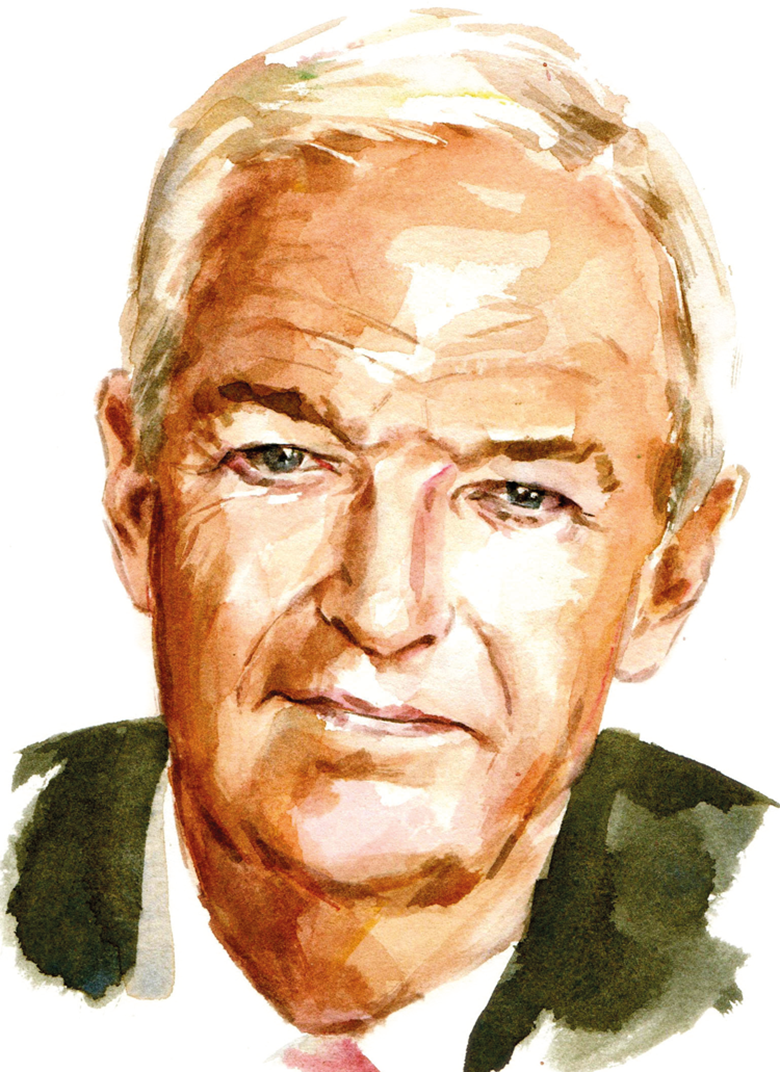Jon Snow | My Music: ‘In moments of relative despair you will find people playing music – in Syria, in Iraq, in all sorts of places’
Gramophone
Thursday, April 29, 2021
The journalist and presenter of Channel 4 News since 1989 reveals how his love of music was instilled in him from early childhood

My mother, a pianist, was at the Royal College of Music and so there was a lot of music in the house. My father liked Beethoven and she hated Beethoven – so there was a lot of tussle about that! (She loved Brahms, by the way.) It was singing away with her at the piano that alerted them that I might have reasonable pitch and a good voice. As a result, they put me in for the trials at Winchester Cathedral and at the age of seven-and-a-half I got in. And so unfolded the most extraordinary experience.
I should have pursued a musical career but I wasn’t actually musical enough. I could sing, and I could sing well. I had good tone, but the real problem was that I couldn’t master an instrument and never got past Grade 3 on the piano and Grade 4 on the violin. And it was quite clear that I wasn’t cut out for it. In many ways, it’s gone to waste, except for my own enjoyment.
‘Wagner clearly has the capacity to enable you to lose your sense of anything, except your emotions – and then to unleash them’
Our organist at Winchester was Alwyn Surplice – aptly named! – and he was a caring and decent man; he taught me a lot about music and a lot about singing. You’d have an hour-and-a-half of choral practice in the morning and then you’d sing Evensong in the evening – and that was on a weekday. Then at weekends you’d have three big choral services – Communion, Matins and Evensong – so if you didn’t like what we were doing you’d be very unhappy, but I did. I felt I became part of the fabric of this medieval building. I’m lucky enough to have known when I was there that it was very, very special.
I have music on all the time, but I can’t say I sit in a chair and listen to it. But it is very important to me all the same. I download music that catches my ear, but I’m not an assiduous collector of music. Even in the job I do, music is an incredibly useful concomitant. There are of course occasions when you actually need music to illustrate things and I know a lot of music that I can use. But it also provides a narrative – a narrative of the country you live in, a narrative of the Europe we live in. If you go to Vienna or Berlin, these are places where you want to try and locate the music.
There’s that extraordinary thing that in moments of relative despair you will find people playing music – in Syria, in Iraq, in all sorts of places. I’ve come across the Syrian National Orchestra, 12 of whose members are here, and you suddenly see that for them that is a way of sustaining their ‘Syrian-ness’.
I think this is the golden age for journalism. First of all, it’s sorted the wheat from the chaff. The people who sat around at the back of the office and pumped out the occasional obituary have fallen by the wayside. But if you’re up for it, in what used to be the conventional media, you’ve a fantastic future. Look at what we do: we put out a programme every night, one hour long which about a million people watch. And you’d think that was it. But in this last 18 months, we’ve been posting elements of the programme in a format for mobile phones, with captions, and last year there were two billion views. That’s quite something – more than any British broadcaster! And that’s from a 100-strong outfit which has 15 people working online. That’s got tremendous potential and I genuinely believe that quality will prevail.
I went to only my second opera the other day. (As a schoolboy, we were so steeped in choral music that we looked down on opera and I was never exposed to it.) I was on an Italian government trip to Venice for a seminar and they’d laid on Wagner’s Tannhäuser. I worried about it because it took me up to such a pitch that not only did I cry at one point but I was completely exhilarated. Wagner clearly has the capacity to enable you to lose your sense of anything, except your emotions – and then to unleash them. (I worried a bit about what Hitler had got out it – and I’m still worrying about what Hitler got out it!)
The record I couldn't live without

Vivaldi Recomposed by Max Richter
Daniel Hope; Berlin Konzerthaus CO / André de Ridder (DG)
Purists may resist, but I must say I think it’s a masterpiece. I try to be adventurous and it’s given me a lot of pleasure.
This interview originally appeared in the July 2017 issue. To find out more about subscribing to Gramophone, please visit: gramophone.co.uk/subscribe
















